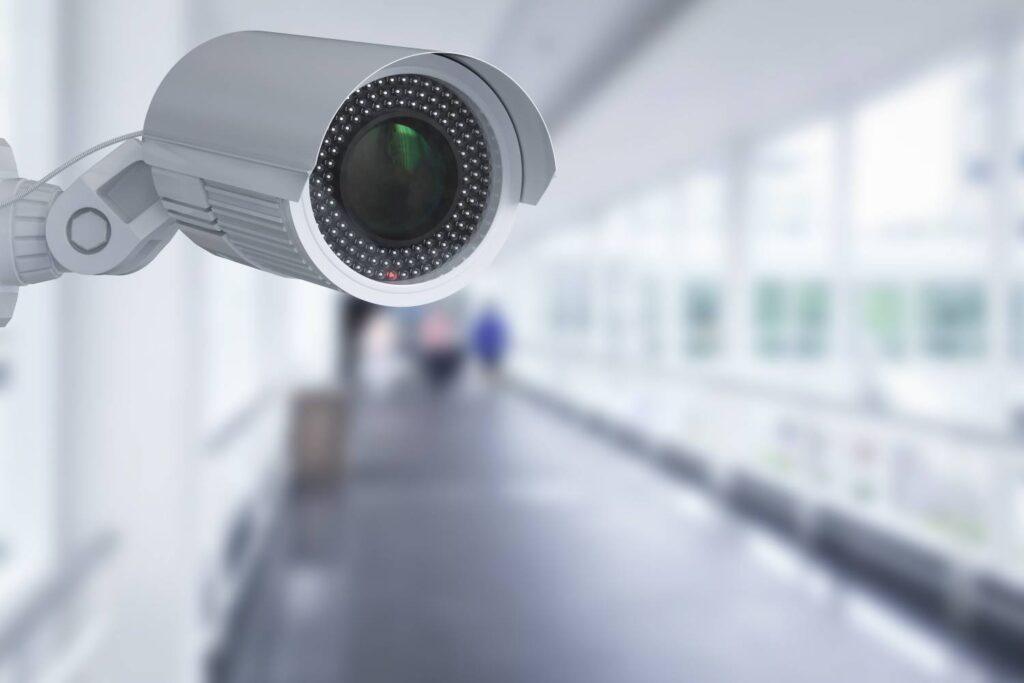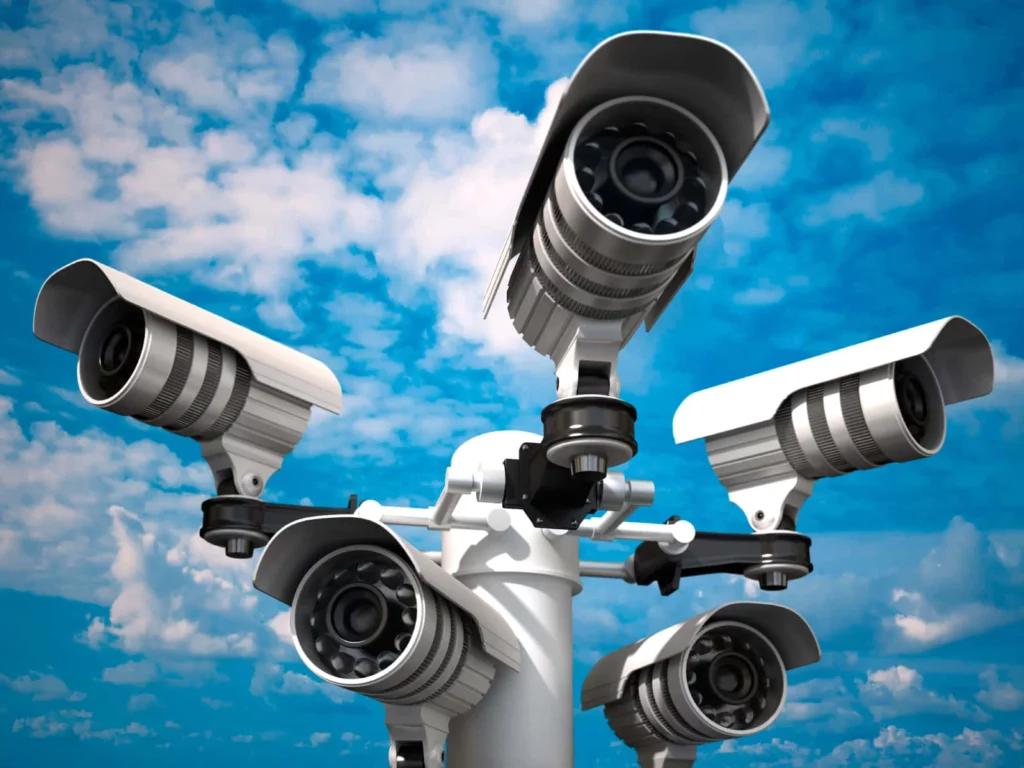In an age where technology is evolving at an unprecedented pace, electronic security systems are becoming increasingly essential for both homes and businesses. These systems not only provide a robust layer of protection against theft and vandalism but also offer peace of mind to property owners. As we delve into the future of electronic security systems, we will explore their various components, benefits, and the latest innovations that are shaping the landscape of security solutions.
The Evolution of Electronic Security Systems
Electronic security systems have come a long way since their inception. Initially, these systems were rudimentary, relying on basic alarms and locks. However, advancements in technology have transformed them into sophisticated networks capable of integrating various components for enhanced security.
The introduction of digital technology has allowed for the development of smart security systems that can be monitored and controlled remotely via smartphones and computers. This evolution has not only made security more accessible but also more effective, as users can receive real-time alerts and updates about their property.
Early Security Measures
In the early days of security systems, physical barriers such as locks and bars were the primary means of protection. While these methods provided a basic level of security, they were often easily bypassed by determined intruders. The introduction of alarm systems marked a significant turning point, as these devices could alert property owners and law enforcement to potential breaches.
As technology advanced, so did the complexity of security systems. The integration of motion sensors, surveillance cameras, and access control systems began to emerge, providing a more comprehensive approach to security.
The Rise of Smart Technology
The advent of the Internet of Things (IoT) has revolutionised electronic security systems. Smart technology allows devices to communicate with one another, creating a cohesive security network that can be managed from anywhere in the world. Homeowners and business operators can now monitor their premises in real-time, receiving instant notifications of suspicious activity.
Moreover, smart security systems can learn from user behaviour, adapting to their routines and preferences. This capability not only enhances security but also improves user experience, making it easier for individuals to manage their security systems effectively.
Key Components of Modern Electronic Security Systems
Modern electronic security systems consist of various components that work together to provide comprehensive protection. Understanding these components is essential for anyone looking to implement an effective security solution.
Surveillance Cameras
Surveillance cameras are a cornerstone of any electronic security system. They serve as both a deterrent to potential intruders and a means of documenting events as they unfold. Modern cameras come equipped with high-definition video quality, night vision, and motion detection capabilities, allowing for round-the-clock monitoring.
Additionally, many surveillance cameras now offer cloud storage options, enabling users to access recorded footage from anywhere. This feature is particularly beneficial for businesses that require constant monitoring of their premises.
Alarm Systems
Alarm systems are designed to detect unauthorised entry and alert property owners or authorities. These systems can be customised to suit specific needs, with options ranging from basic door and window sensors to advanced systems that include glass break detectors and motion sensors.
Modern alarm systems often feature smartphone integration, allowing users to receive alerts and monitor their security status remotely. This capability ensures that property owners can respond quickly to potential threats, minimising the risk of loss or damage.
Access Control Systems
Access control systems are crucial for managing who can enter a property. These systems can range from simple keypads to advanced biometric scanners that utilise fingerprints or facial recognition. By implementing an access control system, businesses can restrict entry to sensitive areas, enhancing overall security.
Moreover, access control systems can be integrated with other security components, such as surveillance cameras, to provide a comprehensive view of who is entering and exiting a property. This integration allows for better monitoring and accountability.
Benefits of Electronic Security Systems
The advantages of electronic security systems extend beyond mere protection against theft. They offer a multitude of benefits that can enhance the overall safety and efficiency of homes and businesses alike.
Deterrence of Criminal Activity
One of the most significant benefits of electronic security systems is their ability to deter criminal activity. The mere presence of surveillance cameras and alarm systems can discourage potential intruders from attempting to breach a property. Studies have shown that properties equipped with visible security measures are less likely to be targeted by criminals.
Furthermore, the integration of smart technology allows for real-time monitoring, which can further enhance deterrence. Property owners can receive alerts and take immediate action if suspicious activity is detected, making it more challenging for criminals to succeed.

Enhanced Safety and Peace of Mind
Electronic security systems provide a sense of safety and peace of mind for property owners. Knowing that their premises are monitored and protected allows individuals to focus on their daily activities without the constant worry of potential threats.
For businesses, this peace of mind translates into a more productive work environment. Employees can feel secure knowing that their workplace is protected, leading to increased morale and job satisfaction.
Cost-Effectiveness
While the initial investment in electronic security systems may seem substantial, the long-term savings can be significant. By preventing theft and damage, businesses and homeowners can avoid costly losses and repairs. Additionally, many insurance companies offer discounts for properties equipped with security systems, further offsetting costs.
Moreover, advancements in technology have made electronic security systems more affordable and accessible than ever before. With various options available, property owners can find solutions that fit their budget without compromising on quality.
The Future of Electronic Security Systems
The future of electronic security systems is bright, with continuous advancements in technology paving the way for even more innovative solutions. As we look ahead, several trends are emerging that will shape the landscape of security systems.
Artificial Intelligence and Machine Learning
Artificial intelligence (AI) and machine learning are set to revolutionise electronic security systems. These technologies can analyse vast amounts of data to identify patterns and anomalies, allowing for more accurate threat detection. For instance, AI-powered surveillance cameras can differentiate between human and non-human movement, reducing false alarms and improving response times.
Furthermore, AI can enhance user experience by learning individual preferences and adapting security protocols accordingly. This level of personalisation will make security systems more effective and user-friendly.
Integration with Smart Home Technology
The integration of electronic security systems with smart home technology is another trend that is gaining traction. As more households adopt smart devices, the ability to control security systems alongside other home automation features will become increasingly important.
This integration allows for seamless management of various systems, such as lighting, heating, and security, all from a single platform. Homeowners can create customised security protocols that align with their daily routines, enhancing both convenience and safety.
Cybersecurity Considerations
As electronic security systems become more interconnected, the importance of cybersecurity cannot be overstated. With the rise of IoT devices, the potential for cyber threats increases, making it essential for property owners to implement robust cybersecurity measures alongside their physical security systems.
Future security solutions will need to prioritise cybersecurity, ensuring that data transmitted between devices is secure and protected from unauthorised access. This focus on cybersecurity will be crucial in maintaining the integrity of electronic security systems.

Conclusion
Electronic security systems are undoubtedly the future of home and business protection. With their ability to deter criminal activity, enhance safety, and provide peace of mind, these systems are becoming indispensable in today’s world. As technology continues to evolve, so too will the capabilities of electronic security systems, offering even more innovative solutions to meet the ever-changing security needs of property owners.
Investing in an electronic security system is not just a precaution; it is a proactive measure that can safeguard your property and ensure a secure environment for you and your loved ones. Embracing the latest advancements in security technology will undoubtedly lead to a safer future.
See Also: Top Security Companies in Sydney: comparing services and solutions.
